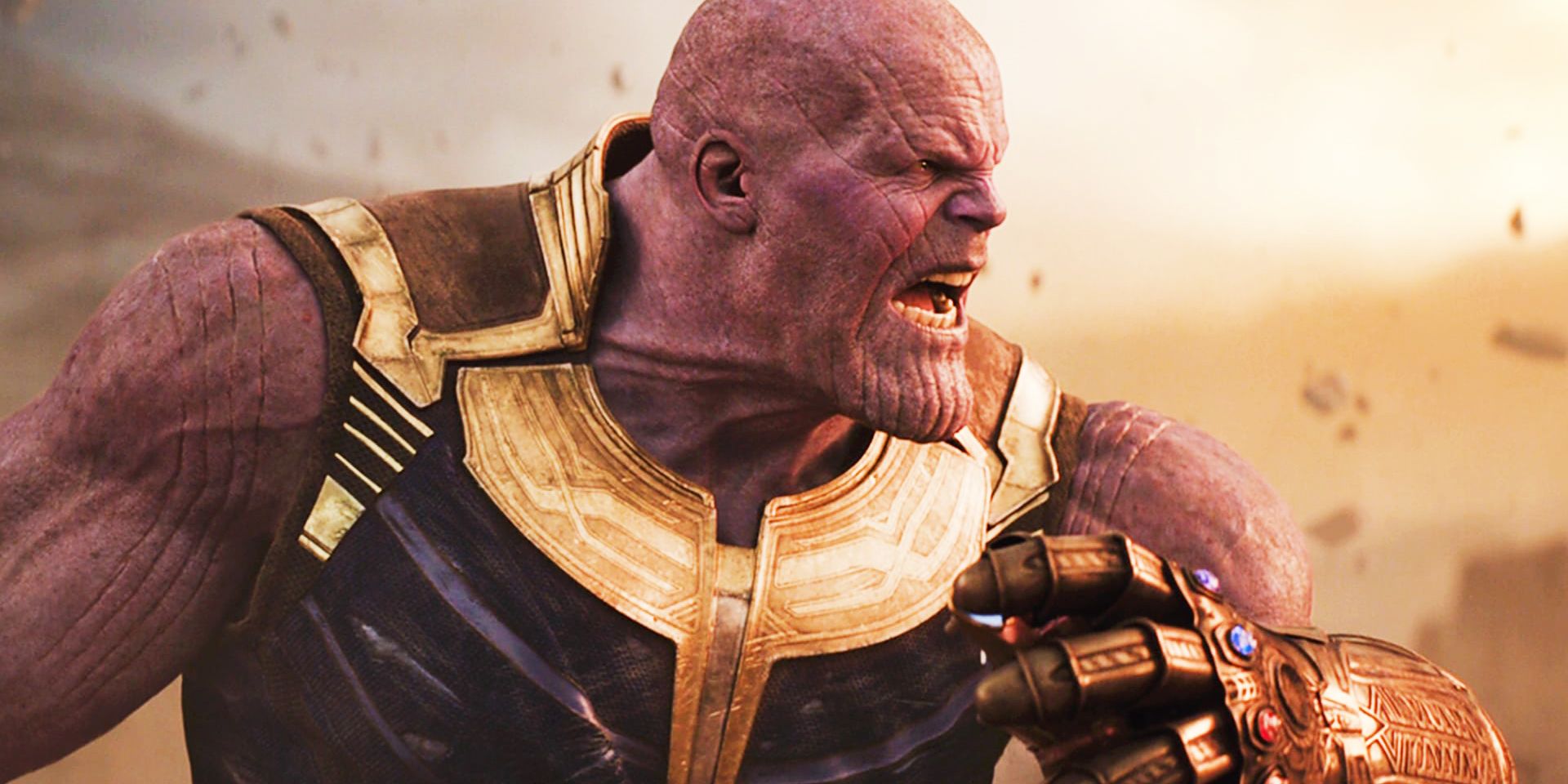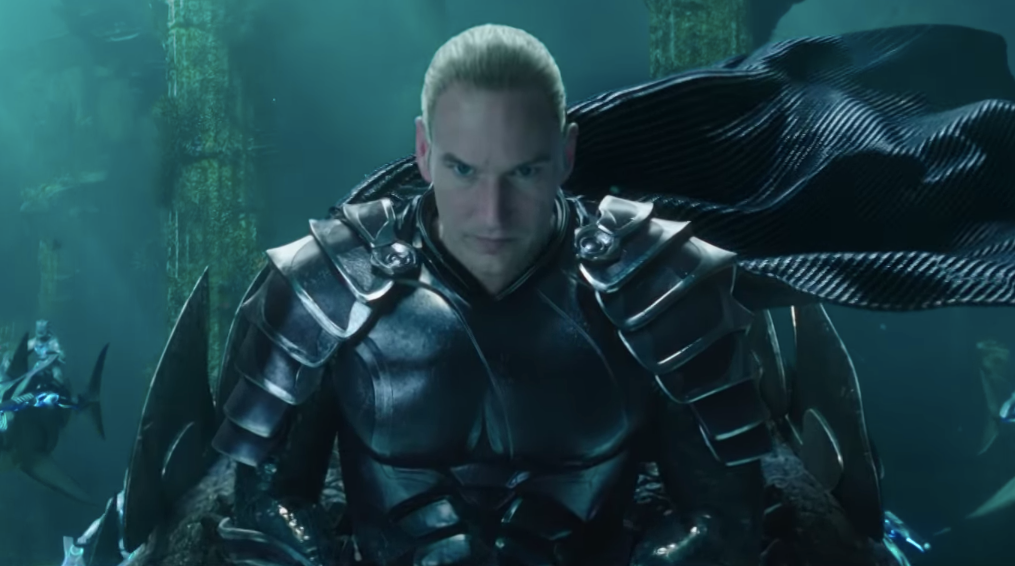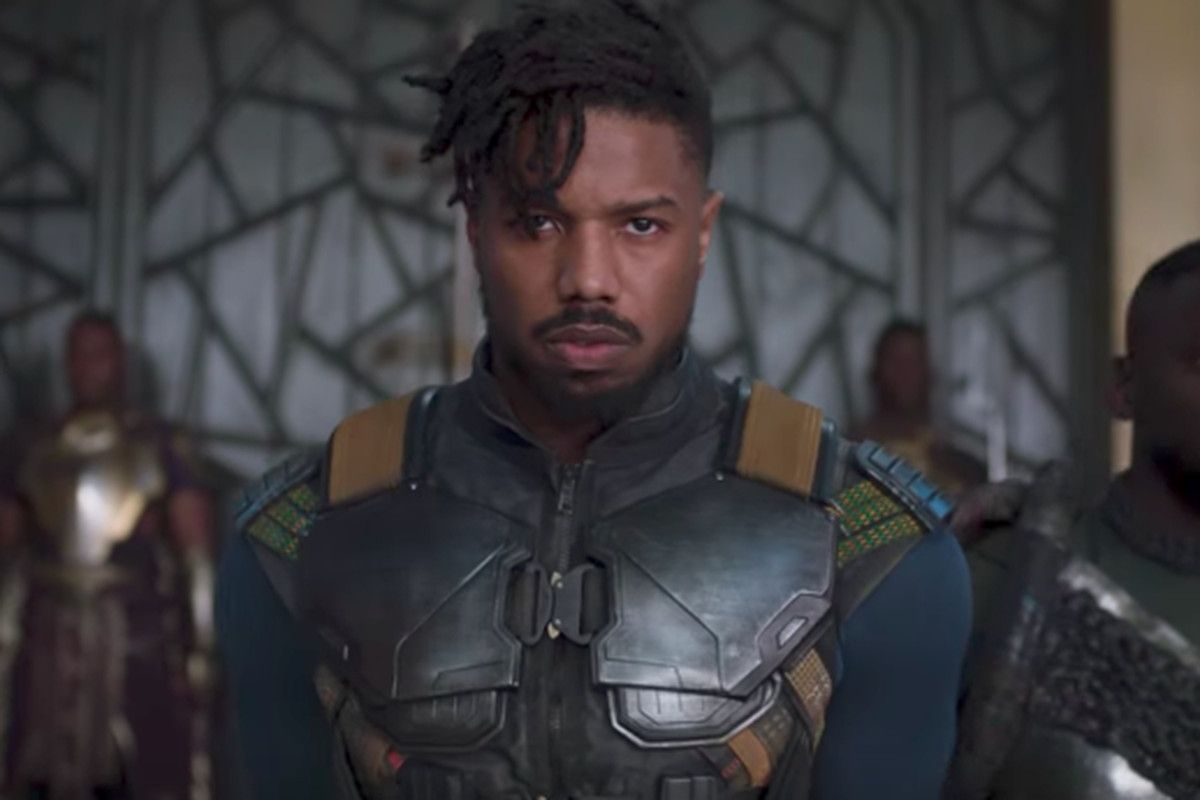While recently shopping in Los Angeles, I overheard a man in a crowd turn to his buddy and declare, “Thanos was right.” That man probably isn't the only person in a large, overpopulated city that’s agreed with the Mad Titan from Avengers: Infinity War in a fit of frustration. Heck, there's a whole subreddit dedicated to people who approve of Thanos' goal. Yet, overpopulation isn’t just something that ruins your shopping trip. It's an actual problem that environmentalists say contributes to all sorts of problems ranging from climate change to food insecurity. So, is it true? Was Thanos actually kind of… right?
Over the course of 2018, three superhero films featured supervillains who some saw as having a point. The year started with Black Panther, whose Killmonger wanted to empower historically oppressed people of color. In late April, Infinity War’s Thanos wanted to combat overpopulation by wiping out half of all life in the universe. Finally, 2018 ended with Aquaman, in which King Orm wanted to punish land dwellers for their abuse and misuse of the ocean.
RELATED: Black Panther Was the Highest Grossing-Film Domestically in 2018
There have been several superhero movie villains with social concerns in the past. For example, Magneto fought for the rights of the mutant race in multiple X-Men films. Additionally, HYDRA wreaked havoc across the Marvel Cinematic Universe in its quest for world domination, which it claims to have done in the interest of keeping humanity safe, though at the cost of freedom and privacy. However, it’s unusual for so many supervillains to openly express such modern concerns.
The genre’s movies aren’t alone in turning their attention to social causes, of course. This season of the CW’s Supergirl has seen the titular hero battling anti-alien crusaders — a not-so-veiled metaphor for supporters of anti-immigration policies. And Doctor Who Season 11, which stars Jodie Whittaker as the first female Doctor, has tackled and commented on all sorts of injustices, even featuring a mission to help Rosa Parks in the American South during the Civil Rights-era.
Clearly, we’ve entered a time where superhero TV and movie creators are less interested in using metaphor and allegory to indirectly address what’s happening in the world. Instead, the characters in these franchises are directly taking part in ongoing conversations.
The internet and social media are making social causes more visible and enhancing the voices of ordinary people who speak out against injustice. This has led to heightened awareness but also greater polarization.
RELATED: 2018 Was the Biggest, and Best, Year for Superhero Movies
Superhero movies reflect this environment by using their stories to focus on social concerns. However, when it’s the villains who give voice to these causes -- who take action to right social wrongs -- it adds a new dimension to the conversation. While the heroes continue to protect humanity as they’ve always done, the bad guys have a point, which puts audience in an awkward position
Viewers understand the villains’ goals, but they also side with the heroes’ desires to protect the population. Nonetheless, villains with a point may actually shift audiences’ perspective on a film’s supposed heroes. Let’s take a look at how this played out in 2018 with Aquaman, Infinity War and Black Panther.
Next Page: How Black Panther Succeeds Where Others Fail
In Aquaman, Orm gives what amounts to an underwater PowerPoint presentation about the damage land dwellers have done to the ocean. He has a point, but his Al Gore-esque explanation could use some work. Furthermore, neither Orm nor the movie itself seems particularly interested in his legitimate gripe. His argument about protecting the oceans is quickly swept away, as he goes after power in any way he can. The movie instead focuses on Orm’s megalomaniacal tendencies and other quirky touches, such as an octopus playing the drums, people riding seahorses and so on. When the movie moves on, so does its audience, which creates little reason for viewers to question Aquaman’s motives.
RELATED: Aquaman Movie Fans Launch an "Orm Did Nothing Wrong" Subreddit
In comparison, Infinity War focuses heavily on Thanos’ goal to wipe out half the universe. Thanos is somewhat of a contradiction. He seems to have no respect for life, killing and torturing without remorse. However, he claims that all his actions are in the service of improving the lives of the people who will remain alive after his snap. (It’s also worth noting that this is a change from Thanos’ motives in the comics, which hinge on impressing Lady Death.)
Thanos’ goal is brutal, but he mentions that his actions improved the lives of those left remaining on Gamora's planet. Despite that, none of the heroes stop to consider Thanos’ argument. His solution is so extreme, so inhumane, that there’s really no debate. And that point is driven home in the final moments of the film, when Thanos actually wins and many of the characters we know and love fade to dust. After that ending, audiences will no doubt continue to root for our avenging heroes when Avengers: Endgame hits theaters in April 2019.
That brings us to Black Panther, in which the title character comes up against Erik Killmonger, who was born and raised in Oakland, California. Killmonger may have done unspeakable acts in his pursuit of the Wakandan throne, but his motivation springs from wanting to correct the terrible oppression he's observed in his lifetime. T’Challa and Killmonger ultimately settle their issues in an epic battle, as all superhero movies must. Yet, in the end, T’Challa actually listens to Killmonger, a rarity in both real life and superhero movies.
In Black Panther, T’Challa learns from his encounter with Killmonger, and opens up his formerly secretive country to the world as a result. While he ultimately does things in his kinder, gentler way, he now understands what his country could do to help the world, something he was too sheltered to realize before. Black Panther places the audience in the middle of a complex conversation and gives voice to everyone’s perspective, leaving viewers to decide where they stand on the issues. The movie’s willingness to deal in shades of grey is what elevates the film, and it’s one of the reasons Black Panther has become a legitimate awards contender.
RELATED: Netflix Was Right the First Time — Thanos IS a Sociopath
It’s hard to say if this trend in socially conscious supervillains is here to stay. If our political and social discourse remains as charged as it has been, though, it’s quite possible audiences will continue to encounter villains whose causes are at least somewhat justified. What that means for us viewers and our relationships with the heroes and villains of these fantasy worlds remains to be seen.




